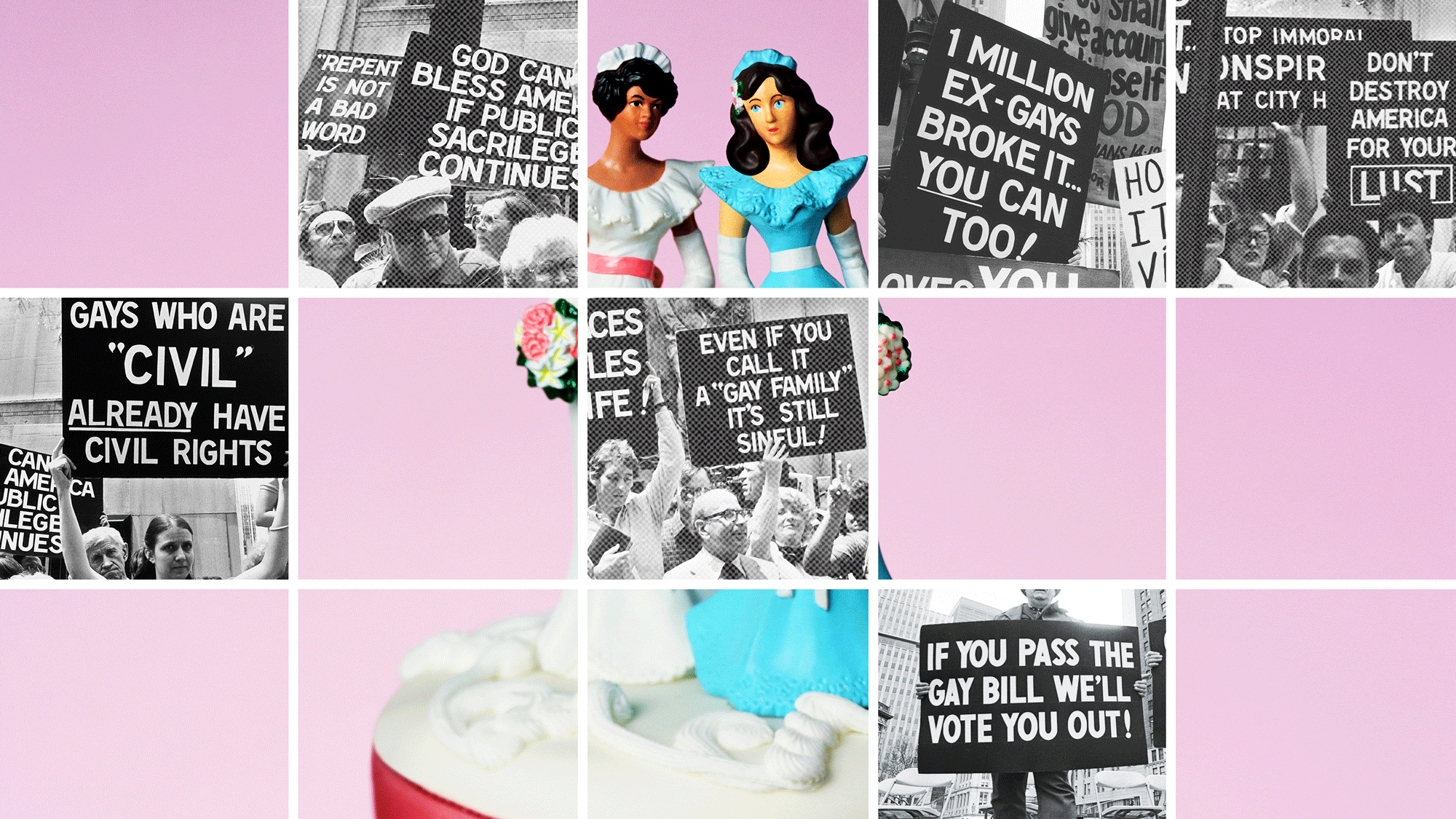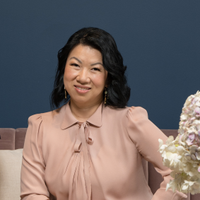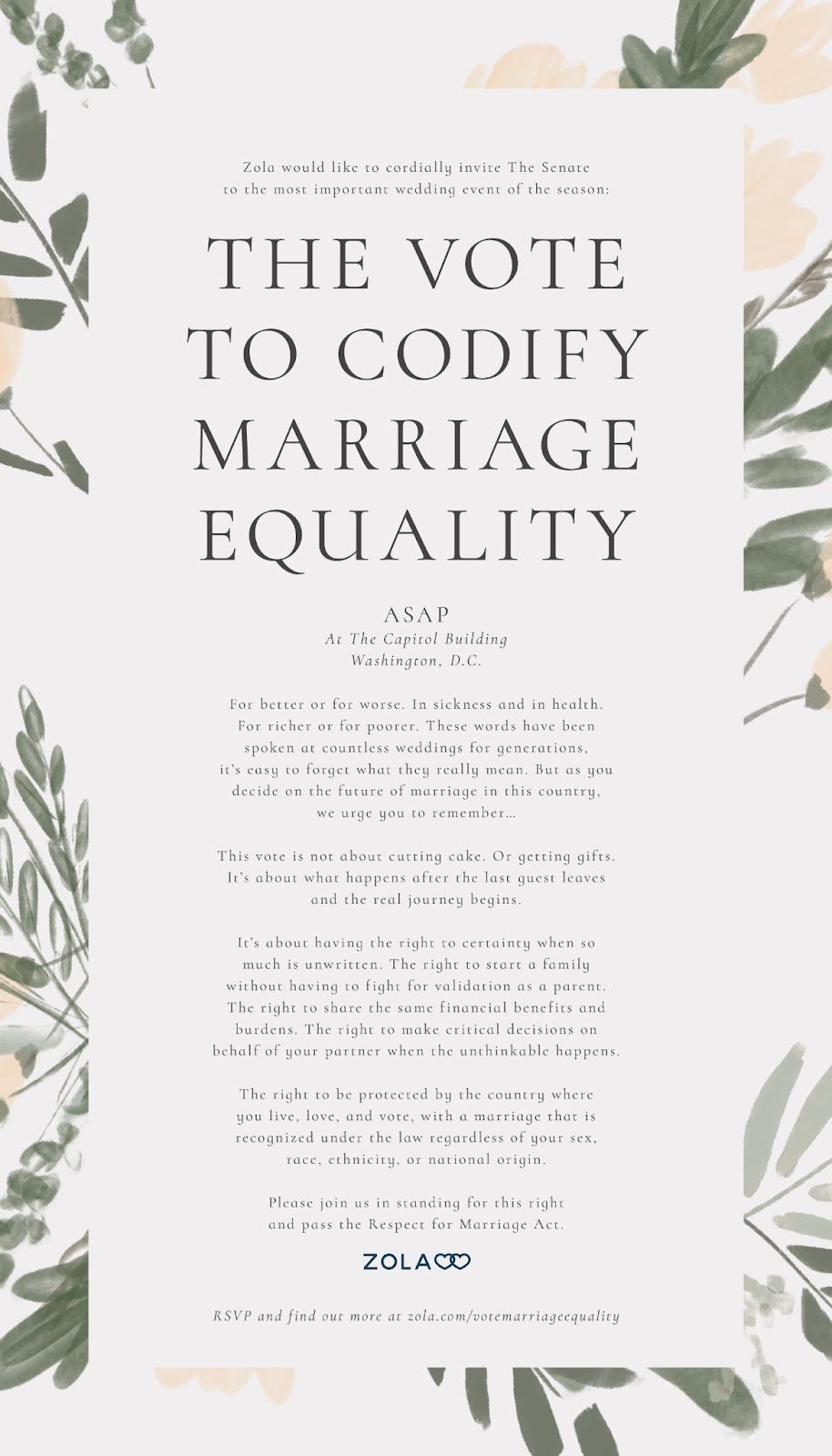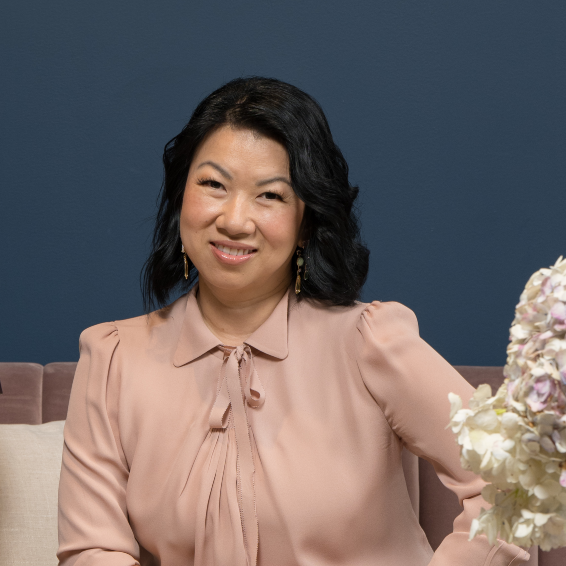The Weaponization of Weddings
It's time for the entire wedding industry to stand up for marriage equality, writes Zola's Shan-Lyn Ma.


Editor's note: February 14 might be Valentine's Day, but for some, "Loving Day" on June 12 may serve as a more meaningful day to celebrate the concept of lifelong union. Loving Day marks the historic Loving v. Virginia ruling, which deemed a Virginia law prohibiting mixed-race marriage unconstitutional, and legalized interracial marriage in every state.
Fast forward to September of last year: Wedding planning company Zola placed a full-page ad in The Washington Post inviting the Senate to "the wedding event of the year" with a message that urges the vote to safeguard marriages for same-sex as well as interracial couples. That December, Congress passed the Respect for Marriage Act, which President Biden signed into law. The bill protects the rights of married same-sex and interracial couples to have their marriage legally recognized and protected by federal and state law, regardless of the state's view on marriage. It ensures these couples can access the basic benefits of being married—like survivor benefits, citizenship rights, adoption eligibility, and so much more.
But in this op-ed, Zola co-CEO and cofounder Shan-Lyn Ma says there's still much to do at the state level (more than 30 states still have gay marriage bans). In this op-ed, she calls on government officials to take a stand and protect marriage equality alongside the private sector, from wedding venues to photographers, web designers, and more.
It's safe to say 2022 was the year of the wedding. I’ll never forget watching my cousin and her partner combine their Scottish and Singaporean heritage with a handfasting ceremony. Or ending the year celebrating the engagement of two of my closest friends, Michael and George.
It was the year when nationwide, over 2.5 million couples decided to marry each other, the highest number since 1984. A wedding boom year born out of the backlog of weddings that had built up over 2020 when COVID put wedding dreams on hold. It was like all of a sudden people wanted to celebrate their love and get on with their lives and do it in front of 150 friends and family members. Because nothing brings people together like weddings.
2022 was also the year when the Supreme Court called marriage equality into question in the same decision in which they overturned Roe v. Wade, reviving feelings of fear and doubt that progress affirmed only seven years earlier, by the Court itself, would be rolled back. It was the year my team at Zola received an email from a same-sex couple planning a wedding which read: “We’re really doing this because we’re scared the Supreme Court will take away our right to marry before we get a chance to do so.” This is just one example of how we’ve seen firsthand this devastating and divisive year of politics have an impact on LGBTQ+ couples during their wedding planning process.
Now, the court is hearing arguments in the case of 303 Creative LLC v. Elenis, in which one website designer, Lorie Smith, is seeking exception from Colorado’s anti-discrimination law because she doesn’t want to create websites for same-sex weddings. How on earth are we still here?
Get exclusive access to fashion and beauty trends, hot-off-the-press celebrity news, and more.
Along with my co-founders, I started Zola in 2013 because the wedding industry needed a complete shakeup. The industry was lacking representation and technology for today’s modern couple so we introduced Zola as a platform built for everyone. Since that time, we cheered when Obergefell v. Hodges meant states were required to license and recognize same-sex marriage.
But then we watched in horror as legal challenges were mounted.

Last September, Zola placed a full-page ad in The Washington Post inviting the Senate to the wedding event of the year, with a message that urged them to vote to safeguard marriage for same-sex and interracial couples.
Just like the Masterpiece Cakeshop case of 2018 was not about a wedding cake, this case is not about wedding websites. Somehow, wedding websites—a place where couples could tell their beautiful story and share wedding details with guests—are now on the frontline of LGBTQ+ rights. What the Supreme Court will actually decide is if businesses can refuse services to same sex-couples on sound legal ground, the implications of which could be enormous and detrimental for generations of couples to come. Weddings are being used as a vehicle by a small group of people in order to pass an extreme agenda and roll back hard-won freedoms. Lorie Smith isn’t in the wedding business, nor is she representative of our supportive and inclusive industry. She’s never actually made a wedding website for anyone, regardless of their sexuality.
At Zola, the focus is always on how two people can combine their backgrounds and perspectives into one ceremony, and how they can express their love for one another through every part of their wedding day. Michael and George, along with every other couple, should never have to worry if their love will be used as a political pawn, or if their florist will claim artistic freedom.
What’s clear is how out of step the Supreme Court is with public opinion. 71% of Americans support same-sex marriage, with that number rising every year. And the country is changing too. According to a recent Gallup poll, the percentage of U.S. adults who identify as LGBTQ+ has doubled over the past decade, while 1 in 5 Gen-Z adults consider themselves part of the LGBTQ+ community.
But the wedding industry is in step. Thousands and thousands of vendors who are part of our community, from planners and venues to caterers, florists and photographers, have happily agreed to our Vendor Vows, to support every couple’s right to marriage, and promising to treat everyone with the love and respect they deserve. These vendors are all uniquely talented, but united in their devotion to helping bring wedding visions to life. They do stand for, and understand, today’s couples. Heterosexual couples can also take a stand by supporting inclusive vendors for their own nuptials.
Celebrating differences, bringing people together, and listening to them. Our leaders, and those bringing these legal cases under false pretenses, could learn a lot from the wedding industry.
We all need to do more. We need to recognize these threats to same-sex marriage for what they are. We need to stand taller and shout louder for the rights of all American couples to marry.
After all, aren’t weddings better when everyone’s invited?

Shan-Lyn Ma is a Founder and CEO of Zola, the startup that’s re-inventing the wedding registry online for modern couples. Previously, she was Chief Product Officer of Chloe + Isabel and prior to that, the General Manager of Gilt Taste. Shan-Lyn joined Gilt Groupe in 2008, when she started as the first Product Lead tasked with defining and evolving the core Gilt.com experience.